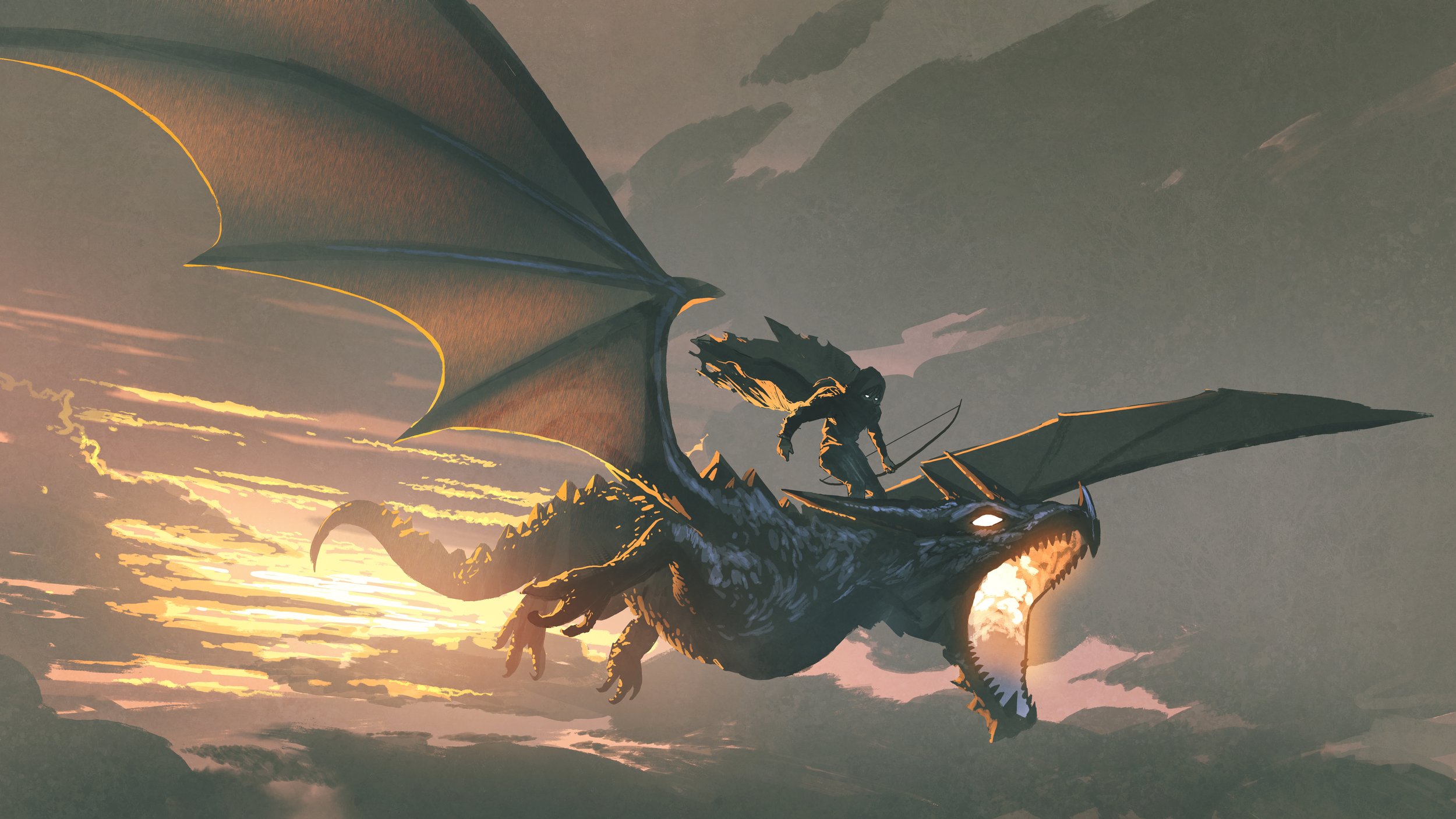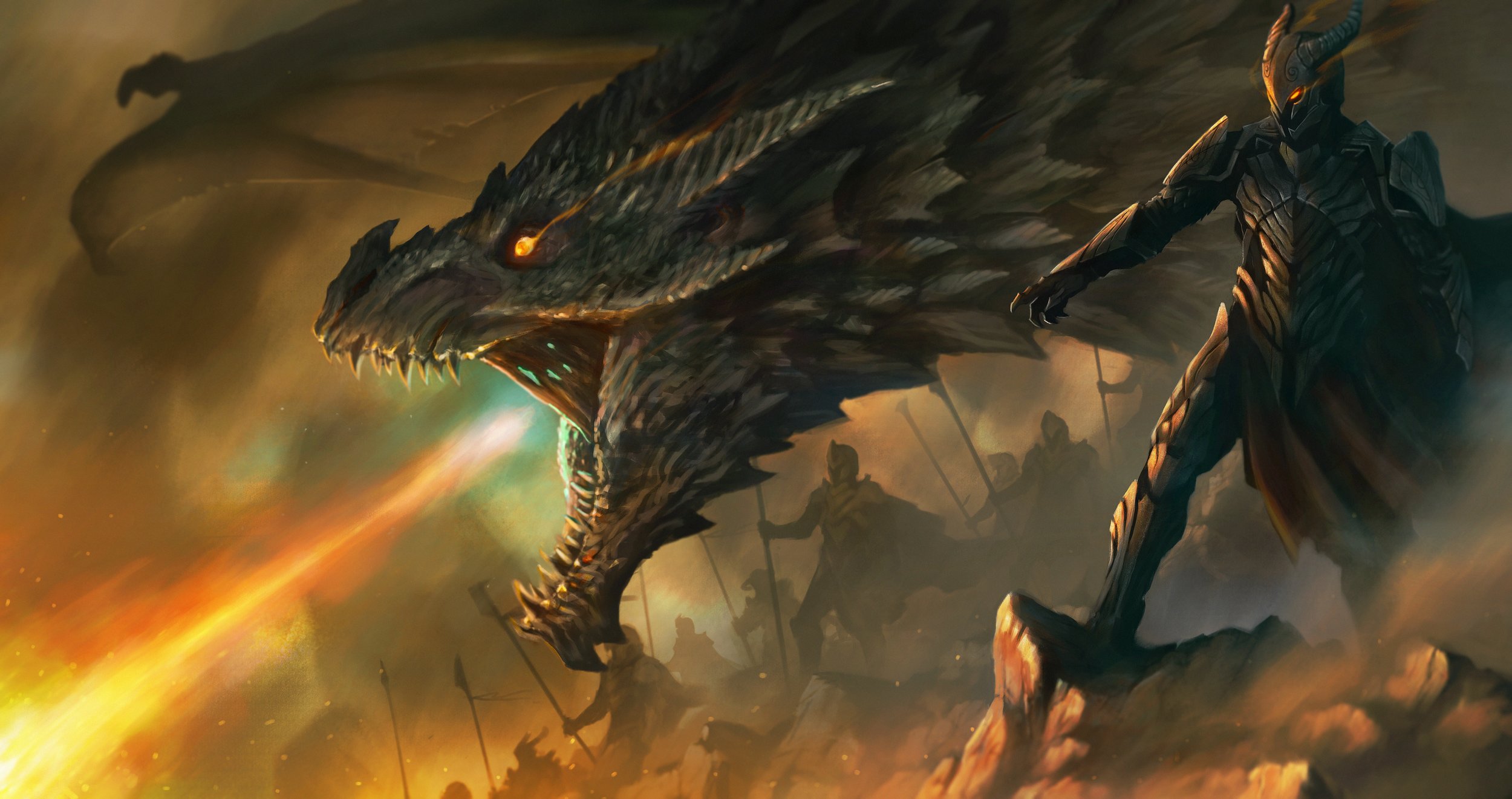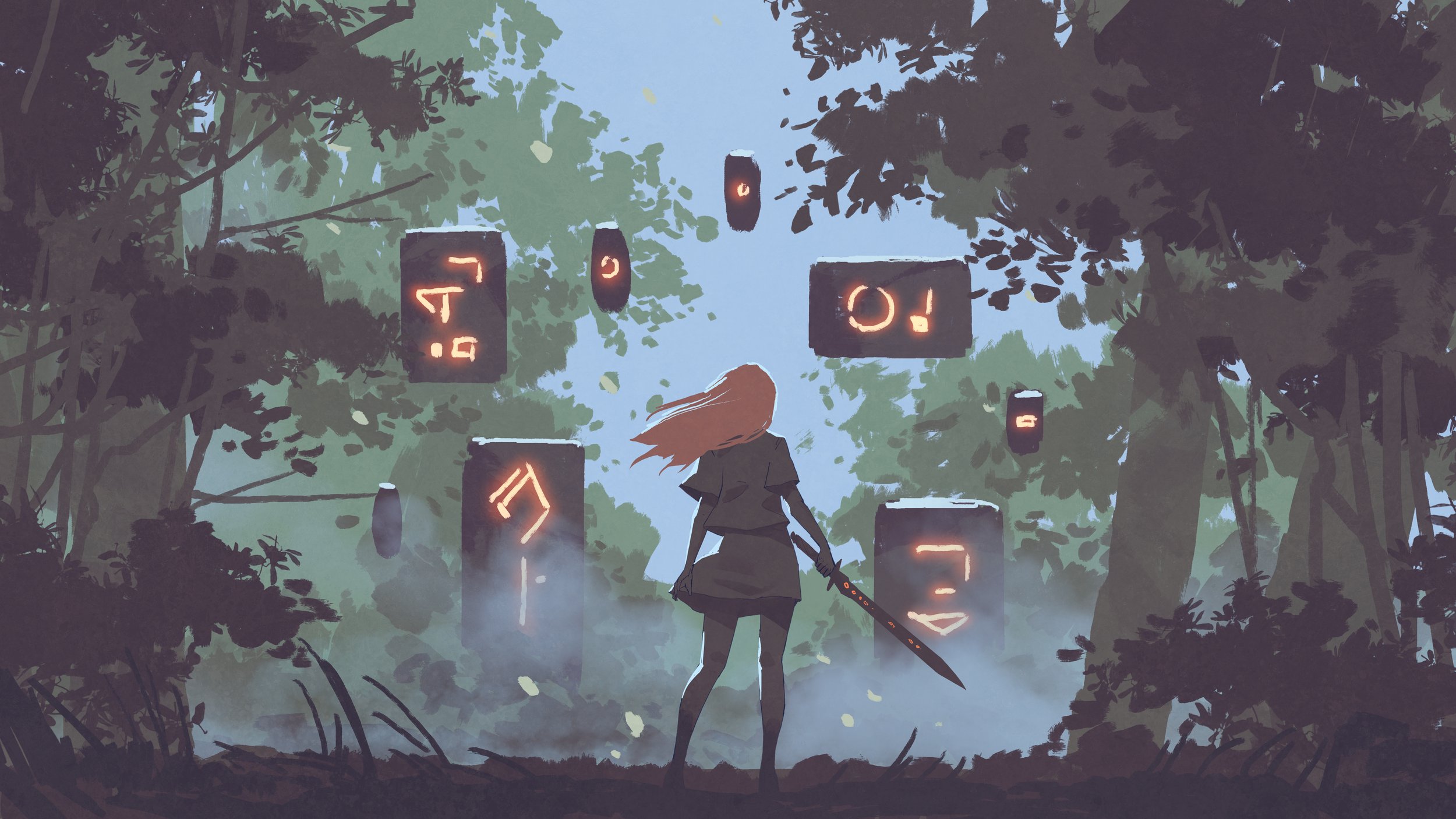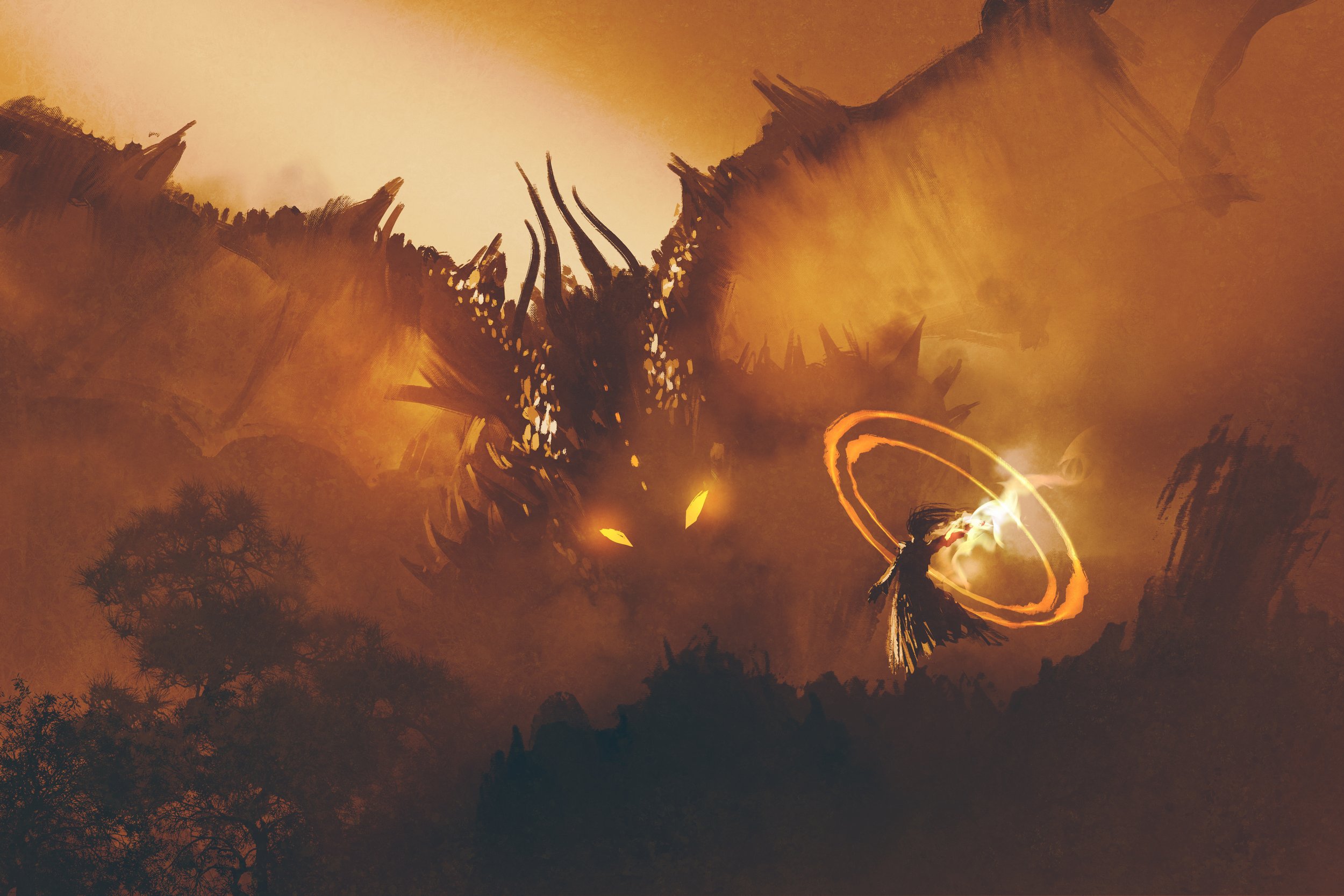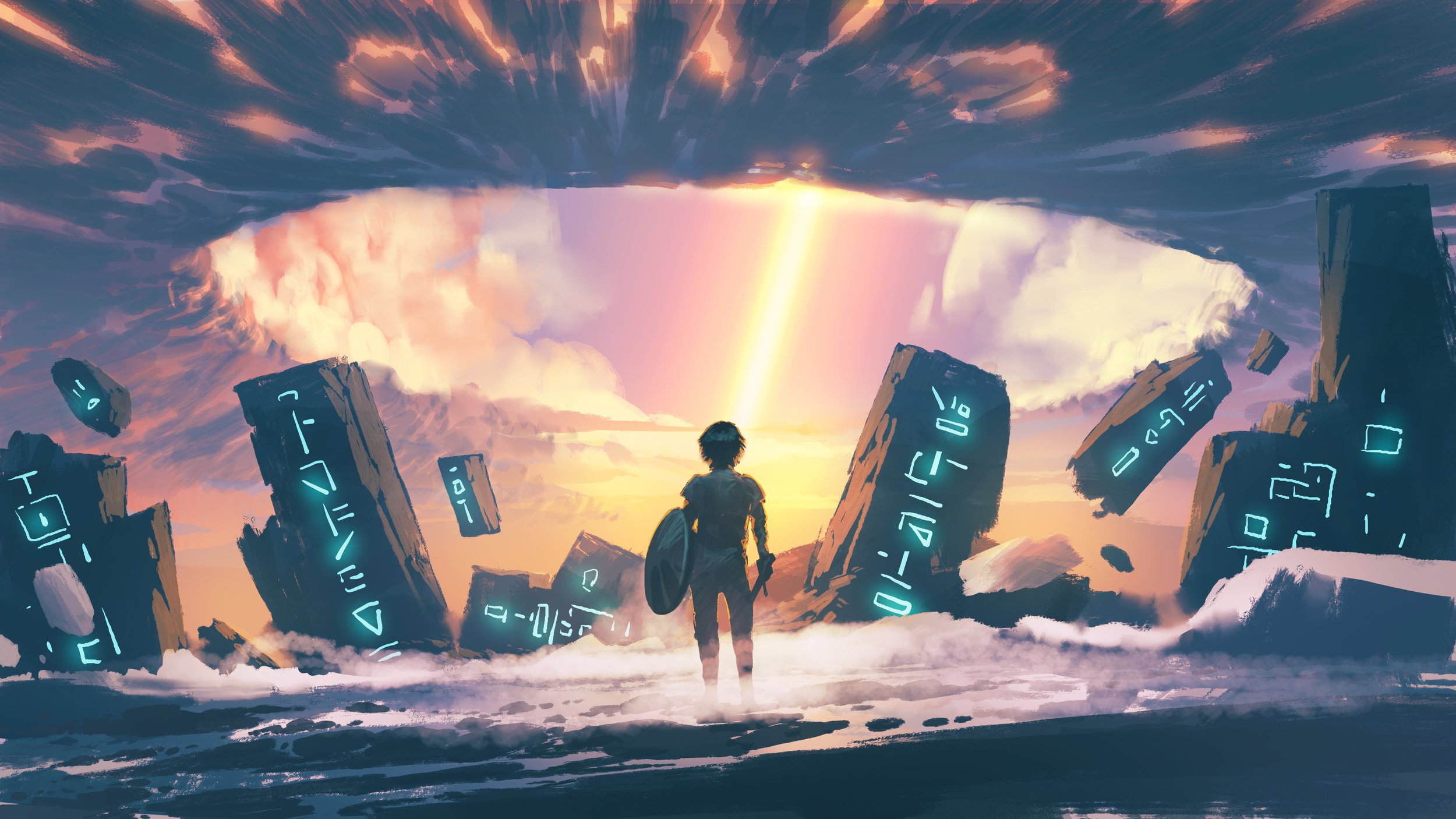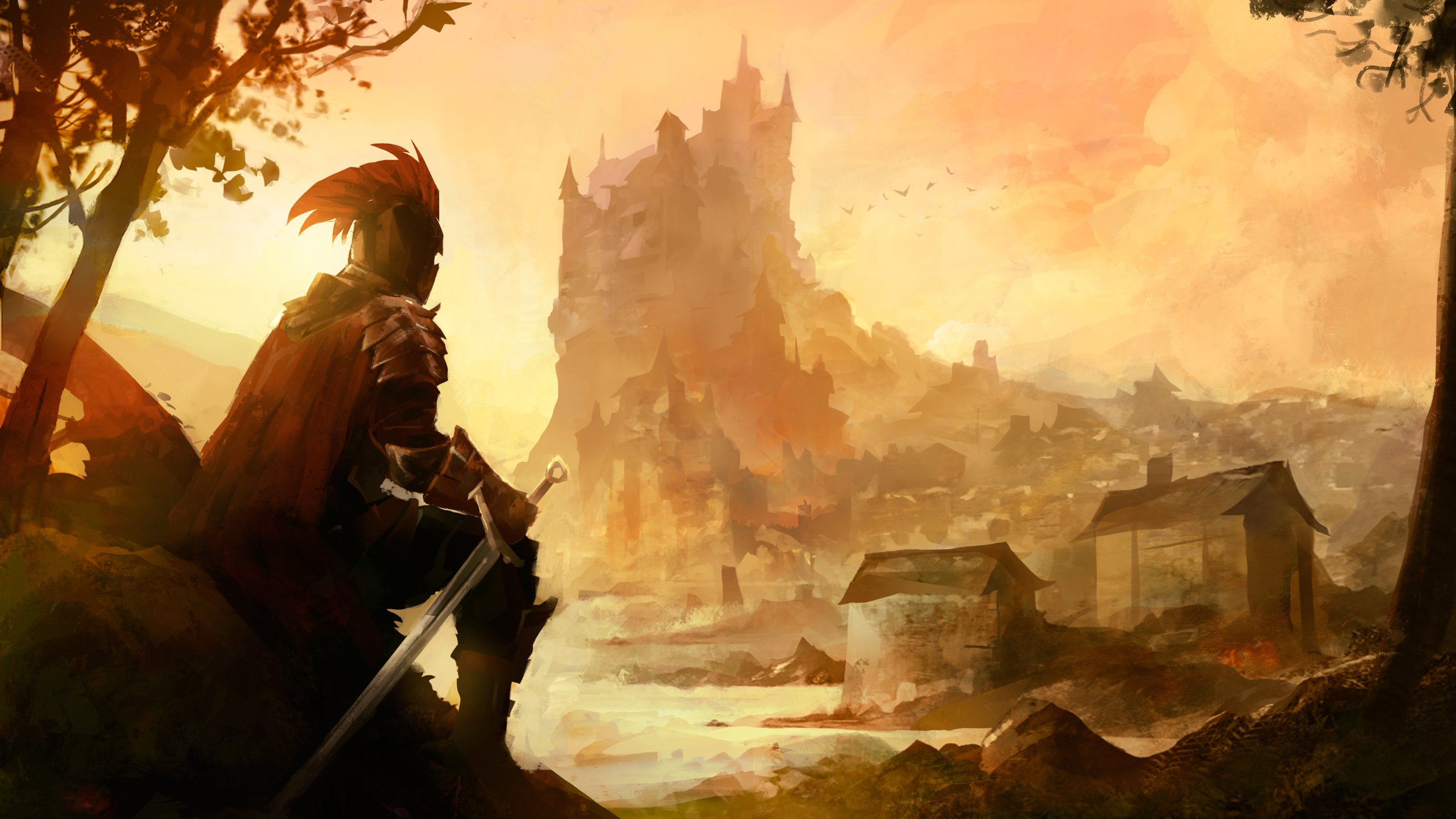How Our RPG Characters Drive Our Personal Development
Roleplaying characters let us pretend to be someone else, but can they help us to discover more about ourselves while having fun in the game?
Roleplaying games let us pretend to be someone else. From digital video games to tabletop Dungeons and Dragons, we explore these fantasy realms through the eyes and ears of our characters. Some of us take great lengths to design deep and meaningful characters to play, with complicated backstories and personalities. At the same time, others will pick values and traits at random, either digitally generated or by the luck of the dice. But regardless of how created, when we play, we will live and breathe the adventure through our characters, listening to their conversations, seeing their world, and controlling their every decision as we enable them to become heroes or villains. It is our hand that allows them to save the world or just earn some coin. But as we take quests and face consequences on their behalf, the line between them and us becomes blurry. And as their character development over the length of the campaign, it may, in fact, help drive our own.
“The essence of a roleplaying game is that it is a group, cooperative experience.”
- Gary Gygax
The RPG Characters We Play
There may be limitless choices when it comes to creating our roleplaying characters. But we often select traits and characteristics that we are familiar with to make playing easier. While at others times, we stretch our imagination and play as personalities that force us to think beyond our experiences. How we create and develop our character over time can also help us with our own personal development.
Making Characters Like Ourselves
Those that are new to roleplaying games will often start with characters that are much like themselves. Starting a new game means learning lots of rules and mechanics, and playing a character that we based on ourselves alleviates stress. We can get involved in the game more quickly and start having fun with less worry.
The characters may not be exactly like us. An elf instead of a human, a magic user, a rogue, etc., but they share our personality. We take their actions as we choose for ourselves. These characters share our traits and embody our personal characteristics.
As players, these types of characters are a great way to explore these fantasy worlds. It places us directly in the action and can really help to engage new players and draw them into the storylines and gameplay.
But these types of characters are also great for learning about ourselves. Games allow us to explore scenarios that we may not encounter in the real world, like defeating monsters, saving a village, or facing up to our adversaries. By playing characters based on ourselves, we can also imagine ourselves facing these dangers.
“I have found that (playing) my own character has been much harder to play worthily and far harder at times to comprehend than any of the roles I have portrayed.”
- Bette Davis
In putting ourselves in the action, we are developing our own character. And that personal development extends beyond the game. A 2019 paper presented at the 2018 Games and Learning Alliance found that this ability to see ourselves in our characters can help us develop and improve our own skills of self-reflection. And in a 2020 study published in the Journal of Humanistic Psychology, it was reported that RPG players experienced significant moral development in their real lives through the use of their in-game character development.
And this self-development process can start before we even start playing the game. An essential part of character creation is defining their traits and characteristics. In many TTRPGs, this includes their personality traits, bonds, ideals, and flaws. To realistically put ourselves in the game, we must define these parts of ourselves. It may mean the need, to be honest with ourselves about what are our flaws or ideals. What actually is our personal bond or purpose that motivates us to succeed?
“I’m not playing a role. I’m being myself, whatever the hell that is.”
- Bea Arthur
After playing our characters over time, they will grow and will develop themselves. Their personalities will change when facing challenges, overcoming obstacles, and dealing with consequences. But we must grow ourselves to keep up with them.
When a character is based on ourselves, we can make decisions for them based on what we ourselves are ready for. A seasoned DM once told me of an issue with one of his players. After a multiple-year campaign, their character had become predictable and was no longer developing with the rest of the party. But it was the player that was struggling. The player was not ready to embrace their personal development and grow as an individual. Ultimately, the player’s lack of personal growth was limiting their character.
Playing characters that are a representation of ourselves is a great tool for personal development. As our own experiences shape the characters that we play, the nature of roleplaying helps us to grow and develop our own character in the real world as well.
RPG Characters as Our Best Selves
Another common play style is to develop characters that represent our ideal selves. We can create the strong, wise, or charismatic leaders, scholars, or fighters that we wish we could be. As players, roleplaying with these types of characters can make us truly feel heroic.
But it is more than just playing a fantasy version of ourselves, pretending to be a barbarian or wizard. Our characters can be created without the same limitations that we may personally face. We can imagine ourselves without physical restrictions, without our struggles, or the negative past experiences that have shaped us. These characters give us the freedom to be ourselves regardless of any limitations that the real world may have placed upon us.
This ability to play as our idea selves also extends to our personalities. Our characters may share our values but can have the courage, bravery, and self-confidence that we ourselves lack. Through them, we will face down the monster, save the villagers, and always stand up for our beliefs. This type of character lets us become the best type of person in the game that we wish we could be in real life.
One of the biggest values of playing idealized versions of ourselves is that it allows us to act without our fears holding us back. This roleplaying aspect has long been used in psychotherapy, where people can explore difficult or challenging situations in a supported and safe environment. Several studies over the past decade have found that the roleplaying aspects of RPGs, specifically Dungeons and Dragons, translated well into therapeutic environments. For example, a 2020 study found that D&D can assist with psychological recovery and mental health difficulties. Thanks to the game’s roleplaying, RPGs can help us see beyond our personal fears and limitations and find our own personal growth and recovery.
“Be yourself, but always your better self.”
- Karl Maeser
Playing characters that reflect our ideal self lets us understand what it feels like to be as we wish we were. It can inspire us to take action in our real lives as well. It encourages our own personal development as we strive to become more like our characters. Ultimately it reminds us that we are only a few decisions away from becoming the real-life heroes that we want to be.
Playing as Our Opposites
After becoming more familiar with an RPG, some players will branch out and try different types of characters and roleplay traits that are less familiar. One type is developing a character that is not only completely different but opposite of the player themselves.
A careful or honest player may choose to be an impulsive rogue; a meticulous organizer and planner in real life may choose a chaotic Wild Magic Sorcerer for the gaming table. While another may choose to play an evil alignment, giving in to every negative thought or action.
Sometimes we play these types as a rebellion against our real-world selves. Perhaps we wish that we could be less rigid or free of the restrictions that we or society place on ourselves. These characters give us a chance to break the rules, let loose, and play our darker side. It’s the ultimate escape from reality.
“My current 4e character is a halfling rogue who lies, cheats, and steals, is a downright asshole, and only concerned with material wealth. Completely unlike me. I’m like, 6 feet tall.”
- @Stratisphear Reddit
But to successfully roleplay a character, we must be able to relate to them on some level. Just as actors need some reference point from which they can bring a role to life, our gaming characters will always have some part of our personality, even those opposite us.
If we want to play a character that is truly our opposite, it can be difficult over a long campaign. Even when it is not our intention, over time, we may find our character developing certain personality traits of our own. It is a continual effort to push our imagination and acting skills. We must balance the desire to keep the character in true opposition and yet still retain a personal connection to be fully engaged in the game.
These types of opposition characters can provide some deep insights for personal development. Roleplaying them may push us into difficult or uncomfortable situations and decision-making. They can help us to really explore our values and morals. And if we want to play them as our opposite, we must continually question if they truly are. Or perhaps is there a hidden part of us that sees this character as an idealization and not our opposite?
“Sometimes you have to jump over your own shadow in order to learn something that you will never forget for the rest of your life.”
- Heidi Klum
In psychology, the formation of character is a comparison and growth process. We compare ourselves with who we are, who we want to be, and who we are afraid of becoming. These changing views of the Real Self, Ideal Self, and Dreaded Self lead to the development of our personal character. By playing RPG characters that embody these three parts, from characters like us, our ideal, and our opposite, we can more deeply explore these aspects in ourselves. And ultimately, as our game characters develop, we also grow ourselves.
Now for Something Entirely Different
The last common type of character in RPGs is one that is not based on ourselves at all. These may be randomly generated or just a combination of traits that sound interesting. RPGs give us a chance to escape our reality and play in a fantasy world, and playing characters disconnected from our personality, helps provide a more imaginative feel.
We may be assigned a pre-made character by the DM for a short campaign or pick traits and characteristics randomly from a list. Perhaps, we’re inspired by a character in a movie or book and want to try their personality for fun. TTRPGs are particularly great in the sear variety of options available in making a character.
These types give us a true element of escapism and can make for a fun and unique experience. We can use them to create different roleplaying scenarios, work with other party members to create a united party experience, or just try on different personalities for fun.
’“Every character I get to play has some element of who I am, but there’s not fun in playing yourself.”
- Octavia Spencer
From a psychological perspective, these types of characters can be amazing for learning about others. When we roleplay as a character with traits different than our own, we develop a better understanding and empathy for those that may be different from us in real life. A study in the Journal of Personality and Social Psychology tested the attitudes of participants before and after roleplaying. It found that there was a definitive change in the attitude and beliefs of participants after the game. And a 2015 study found that those that regularly play RPGs develop significantly higher empathy levels than non-gamers.
Sometimes by playing a character with different traits, it may be to seek understanding of a hidden side of ourselves. We may pick traits that resonate on a deeper level but do not see our personal connection. As suggested in by the editor of the International Journal of Role-Playing, RPGs give us an opportunity to “try on” different personalities.
“I’d like to live long enough to be someone else.”
- Percy de Rolo, Critical Role
By playing characters with unique characteristics, we can experiment with a particular personality or other aspects that we are not yet ready to accept as part of ourselves. A 2020 study found that TTRPGs can significantly impact the lives of those within the LGBTQIA+ communities. Players that may be closeted or have difficulty expressing a stigmatized identity may use their roleplaying characters as their initial steps in experimentation. The immersion and narrative RPG experience allowed them to explore these undeveloped pieces of their identity. And in some cases, players may find the validation and confidence to integrate these aspects into their own lives.
Whether seeking to understand ourselves or others better, playing characters with different traits and personalities helps us gain empathy and acceptance. It pushes us to explore new ideas and values and see the world through the eyes of others. These characters allow us to literally put ourselves in the footsteps of another and experience the world as they would.
RPG Character Creation Tips
Here are some ideas to make the most of your RPG character development to enhance your personal growth and understanding.
Play characters with different sides to your personality. When you roleplay a character with similar values and belief systems, reflect on they react in dangerous situations. How might you identify with your character at times when they are willing to compromise those values? What can you learn about yourself in the fantasy realm?
Roleplay characters that are entirely different than yourself or what you typically play. Perhaps a different alignment, a character with disabilities, gender, or value system. How does it feel to see the world through their eyes? Do you find yourself judging yourself when playing this character or gaining understanding?
Pick a completely random character. Maybe use a D100 table for traits or a random digital creation. Build your roleplaying skills to explore this unique character. Even when randomized at the start, what part of yourself do you end up seeing as the character develops over the campaign?
“How do you want to do this?”
- Matt Mercer
RPG characters let us pretend to be anyone we want to be. They let us escape, explore and have fun in the fantasy worlds of the game. But while we’re enjoying the immersion, they are changing and shaping our own personalities. Our engagement with our characters leads us to personal discovery and to greater empathy and understanding of others. While they are the only personalities of imagination and fantasy, it can be through our RPG characters that we ultimately become the hero ourselves.
Author:
Laurie Trueblood is a writer and life coach that enjoys fantasy, science, psychology, and everything nerdy. As the founder of Adventures to Authenticity, her mission is to help others level up and become the best versions of themselves.
Read more on tabletop gaming: Check out the Why We Like Fear and Tips for a Great RPG Horror Campaign Experience and TTRPGS and Personal Development
And check out our Life as an RPG articles such as Anger as an Anger of Effect Spell and Real-Life Questing
